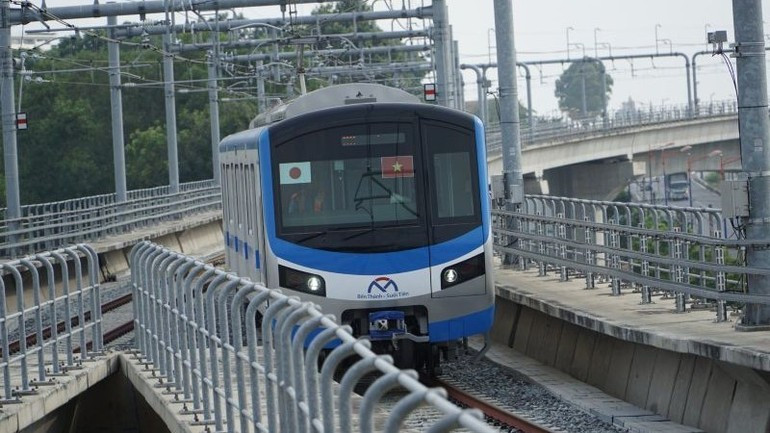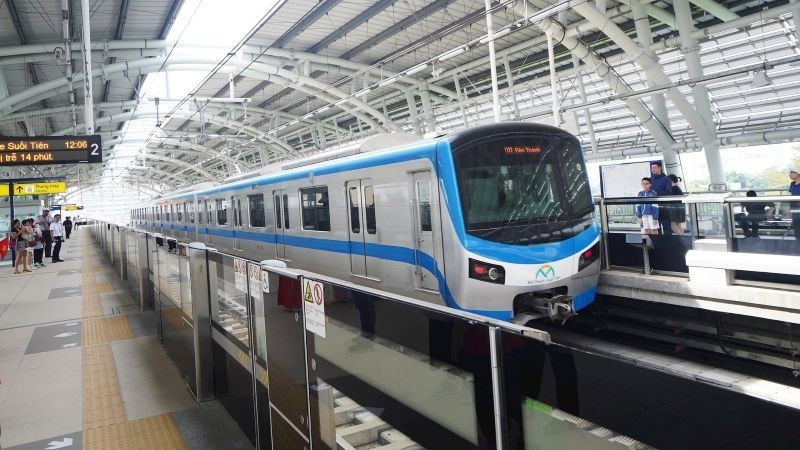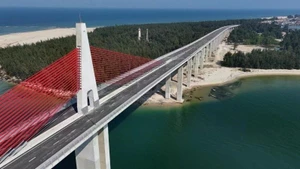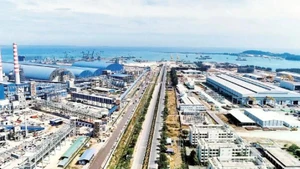This is regarded as the Government’s effort to reform comprehensively the mechanism for managing and using ODA, and foreign preferential loans, contributing to socio-economic development and accelerating the progress of national key projects.
Removing bottlenecks in ODA mobilisation
Over the past 30 years, ODA and foreign preferential loans have played an important role in Viet Nam’s socio-economic development.
Many transport works, expressways, hospitals, schools, and projects on clean energy, the environment, healthcare, and education across the Southeast region bear the mark of this valuable capital source, including the Ho Chi Minh City Environmental Improvement Project; the Ben Thanh – Suoi Tien Urban Railway (Metro Line No. 1 Ben Thanh – Suoi Tien); the Ben Luc – Long Thanh Expressway; and the Long Thanh – Dau Giay Expressway. All of which have brought significant positive impacts to socio-economic development.
However, despite the achievements, the mobilisation, management, and use of ODA, and foreign preferential loans still face limitations. According to Nguyen Quoc Phuong, Director General of the Department of Debt Management and External Finance (Ministry of Finance), common issues include complicated procedures, disbursement delays, lack of coordination among agencies, and overlapping mechanisms that complicate implementation for project owners, ministries, sectors, and localities.
Commenting on the importance of ODA capital, Le Hong Thai from the Ho Chi Minh City Transport Board said that the city currently requires substantial capital for developing transport, water supply, and drainage, and urban infrastructure. “ODA is extremely important. In the past, the city used ODA for many projects such as the Western Boulevard construction project, Metro Line No. 1, and the Water Source Improvement Project Phase 1 and 2. These projects have delivered and are continuing to deliver positive results,” said Thai.
However, challenges have also arisen due to inconsistencies between donor regulations, Vietnamese law, and international agreements, making it necessary to adjust regulations on ODA use to maximise the effectiveness of this capital source.
To address these shortcomings, on September 10, the Government issued Decree No. 242/2025 replacing Decree No. 114/2021 on the management and use of ODA and foreign concessional loans.
The newly issued decree focuses on four key directions: improving the legal framework to ensure consistency with the current legal system and alignment with international practices; reforming administrative procedures to simplify processes and shorten the time required for project approval, adjustment, and implementation; clear decentralisation and delegation to grant greater autonomy to ministries, sectors, and localities while ensuring transparent accountability; and mechanisms to remove bottlenecks for state-owned enterprises and project-implementing agencies, while encouraging private-sector participation.
This is considered an important legal document that completes the legal corridor for managing and using ODA and preferential loans, ensuring alignment with the Law on State Budget, the 2024 Law on Public Investment and other relevant laws.
Expectations for a strong push in project implementation

Expressing confidence in the new policy from Decree 242/2025/ND-CP, Nguyen Ba Hung, Chief Economist of the Asian Development Bank (ADB) in Viet Nam, said that ADB is currently working with Ho Chi Minh City to implement an urban flood control project, which is in the investment preparation stage.
According to ADB, Decree 242/2025/ND-CP represents a positive step in simplifying procedures for ODA-funded projects. “With the more streamlined regulations in Decree 242, ADB is optimistic that project preparation between ADB and the implementing agency will proceed more quickly,” stressed Hung.
He also affirmed that ADB and the donor community maintain close ties with the Ministry of Finance and provide ongoing consultation during the procedural reform process. In the near future, the Government is expected to review regulations related to agreements and international treaties on loan arrangements. This represents a valuable space for further reform—enhancing decentralisation, simplifying procedures, and improving oversight efficiency.
According to Le Hong Thai, the issuance of Decree 242/2025/ND-CP is timely and necessary to reduce procedures, shorten implementation time, and accelerate the completion of ODA projects.
One progressive provision highlighted by Thai is the removal of the requirement for project proposal submission during the project preparation and financing preparation stages. This helps project owners reduce implementation time by approximately six months. In addition, project appraisal time has been shortened, and decentralisation, and delegation have been strengthened, creating far more favourable conditions for project management units to ensure smooth project preparation and implementation.
With these significant reforms, Thai believes that the implementation of Ho Chi Minh City’s projects in the near future will be far more efficient and convenient. He also recommended that during implementation, executing agencies would greatly benefit from clear and detailed guidance to ensure correct and effective application of the regulations, supporting the city’s infrastructure development.
Nguyen Quoc Phuong affirmed that in the coming period, the Ministry of Finance will accompany ministries, sectors, and localities in implementing Decree 242/2025/ND-CP; provide timely instructions and address emerging difficulties; and continue institutional reform and improvement of public debt management capacity, ensuring a transparent, favourable legal environment aligned with international standards.
















